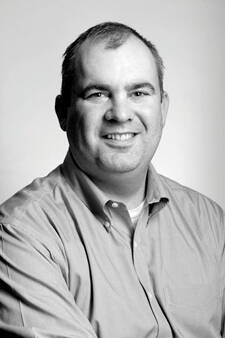Somewhere around a quarter of a century ago, I found myself sitting down at a table in my high school gym to take the A.P. English IV test. I had an extraordinary teacher for that class, so I should have been ready; but I had spent months obsessively rereading Joseph Heller’sCatch-22, with the occasional break for a Tom Clancy novel, and so was blindsided by the essay question: “Many famous novels feature a close relationship between a protagonist and his/her sidekick. Select one book from the following list and describe how the relationship between the two enriches and develops the plot. Be specific.”
Yossarian, the protagonist ofCatch-22, is of one of literature’s great loners, so I could hardly write about him. And for some reason, none of Tom Clancy’s novels were on the list, so Jack Ryan was also out. I peeked around; my classmates were already writing. The situation was dire.
Suddenly my eyes alighted on the drama kids in the corner.Eureka! The fall musical had been “Man of La Mancha,” and what better sidekick was there than Sancho Panza? The list of approved novels certainly included “the first novel” of them all,Don Quixote. Onward to glory I wrote!
Or so I thought. We met with our teacher afterward to review. “Keane, you fool,” he spluttered. “‘Man of La Mancha’ is a two-hour musical.Don Quixote is a 900-page book from the 17th century. You have no chance of passing.”
Years later in graduate school, I finally read the novel cover to cover. Lo and behold, it was rather different from the musical. Who knew?
All jokes aside, this memory has been on my mind during the latest round of academic hand-wringing over the workplace of the future. The liberal arts, policymakers agree, should take a back seat to the STEM disciplines of science, technology, engineering and mathematics. The latter are ballyhooed by everyone from Barack Obama (a political science major) to the former chief executive officer of Hewlett-Packard, Carly Fiorina (double major in philosophy and medieval history), as the key to keeping America’s economy competitive.
Much of this is a numbers game. A generation ago, according to Forbes, 40 percent of the world’s scientists and engineers lived in the United States; now 15 percent do, and the percentage will continue to shrink as China’s and India’s huge populations of engineering students enter the workforce. And there is little doubt that the technology sector will play a more prominent role in the future. We do need more engineers and scientists—many more.
The funding for those programs has to come from somewhere, however. Because of diminishing resources, the specter of “program prioritization” haunts almost every university in the country, and rarely does the priority go to the liberal arts. The result is that these programs often have to justify their existence on the grounds of economic utility rather than pedagogical importance.
There’s an argument to be made there, actually. I suspect that I passed that A.P. exam (no really, I did) 25 years ago for two reasons. First, my exposure to curricula heavy on verbal expression had taught me some basic skills in critical thinking and writing that helped me scheme my way through a complex problem. Second, I met people working in creative endeavors for which I had no training at all, who offered me a basic cultural competency. The stupidity of trying to fool the College Board exam readers with an answer based on a play requires, after all, that one has seen the play.
But economic advantage is not the only goal of education. Nor do humanities studies exist just to make our nerds more cultured than yours. From Plato to Cicero through the JesuitRatio Studiorum all the way to John Dewey, Western cultures have recognized that broadened horizons account for a good citizenry, and every time we move away from that notion we suffer. Future employment might be the most quantifiable goal of education, but it is certainly not the primary determinant of a society’s health. And can’t we agree these days that our society’s health is more on our minds than our economy?
If we cannot encourage innovative and creative ways of thinking, or train our children to revisit forgotten ones, all the technology training in the world is just so much tilting at windmills.








